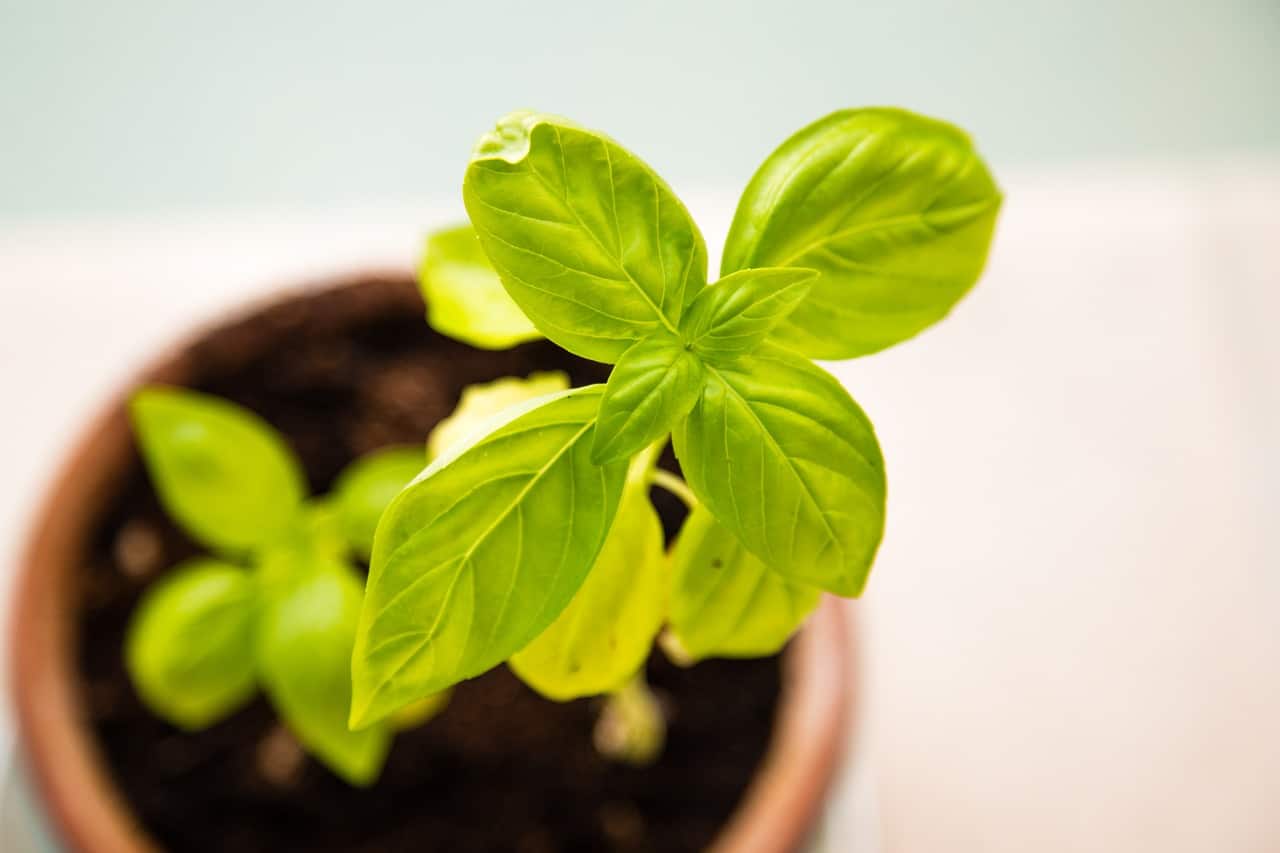
Basil and holy basil, also known as Tulsi, are related plants but differ in various aspects. Basil, known as Ocimum basilicum, has a sweet flavor and is commonly used in culinary applications. Holy basil, or Ocimum sanctum, has a more peppery taste and is revered for its medicinal properties in Ayurvedic tradition. While basil is primarily used in cooking, holy basil is often consumed as a tea or used for its potential health benefits.
What Is Holy Basil
Holy basil, also known as Ocimum sanctum or Tulsi, is a sacred herb in Hinduism. It’s renowned for its medicinal properties and is commonly used in Ayurvedic medicine. Holy basil has aromatic leaves with a strong, peppery flavor and is known for its adaptogenic properties, helping the body cope with stress. It’s also used in culinary dishes and teas for its unique flavor and potential health benefits.
Growing Holy Basil
Growing holy basil, or Tulsi, requires warmth and sunlight. Start seeds indoors or directly sow them after the last frost. Plant in well-drained soil and provide consistent moisture. Holy basil thrives in temperatures around 70-75°F (21-24°C) and requires at least six hours of sunlight daily. Harvest leaves regularly to promote growth and prevent flowering. Holy basil is a perennial in tropical climates but can be grown as an annual elsewhere. It’s revered for its medicinal properties and adaptogenic qualities, making it a valuable addition to any herb garden.
What Is Holy Basil Used For
Holy basil is used for various purposes. In Ayurvedic medicine, it’s revered for its adaptogenic properties, helping the body cope with stress and promoting overall well-being. Holy basil is also used in culinary dishes, teas, and herbal remedies. Its peppery flavor adds depth to dishes, while its potential health benefits make it a versatile herb with a long history of traditional use.
What Does Holy Basil Taste Like
Holy basil has a unique taste characterized by a peppery, slightly spicy flavor with hints of clove and citrus. Its flavor profile is more robust and intense compared to sweet basil. The leaves are aromatic and impart a refreshing, herbal taste. Holy basil’s distinct flavor adds depth to culinary dishes and herbal teas, making it a versatile herb appreciated for both its taste and potential health benefits.
Difference Between Basil And Holy Basil
Basil, with its sweet flavor, is commonly used in cooking, while holy basil has a peppery taste and is revered for its medicinal properties in Ayurvedic tradition.
Is Basil The Same As Holy Basil
Basil and holy basil are related plants but differ in various aspects. Basil, known as Ocimum basilicum, is commonly used in culinary applications for its sweet flavor. Holy basil, or Ocimum sanctum, has a peppery taste and is revered for its medicinal properties in Ayurvedic tradition. While basil is primarily used in cooking, holy basil is often consumed as a tea or used for its potential health benefits.
Is Holy Basil The Same As Thai Basil
No, holy basil (Ocimum sanctum) and Thai basil (Ocimum basilicum var. thyrsiflora) are distinct varieties. Holy basil, also known as Tulsi, has a peppery taste and is used in Ayurvedic medicine. Thai basil has a licorice-like flavor and is commonly used in Southeast Asian cuisine. Though both are basil varieties, they differ in taste, aroma, and traditional uses.
Is Tulsu The Same As Holy Basil
Yes, Tulsi is the same as holy basil. Also known as Ocimum sanctum, holy basil is revered in Hindu culture and used in Ayurvedic medicine for its purported health benefits. It has a peppery taste and is believed to promote overall well-being, making it a staple in herbal remedies and teas.
Holy Basil Benefits
Holy basil offers numerous health benefits. Rich in antioxidants and essential oils, it may help reduce inflammation, lower stress levels, and boost immunity. Holy basil is also believed to regulate blood sugar levels, promote cardiovascular health, and improve respiratory function. Additionally, it possesses adaptogenic properties, aiding the body in adapting to stressors. Consumed as tea or added to dishes, holy basil is revered in Ayurvedic medicine for its holistic approach to wellness, making it a valuable herb for overall health and vitality.
Holy Basil Spiritual Benefits
Holy basil holds significant spiritual importance in Hindu culture. Revered as a sacred plant, it symbolizes purity and divine protection. Worshipped for its association with deities, holy basil is believed to invite positive energy and spiritual blessings into the home. It is commonly used in rituals, prayers, and meditation practices to enhance spiritual well-being, promote mental clarity, and foster a deeper connection with the divine.

